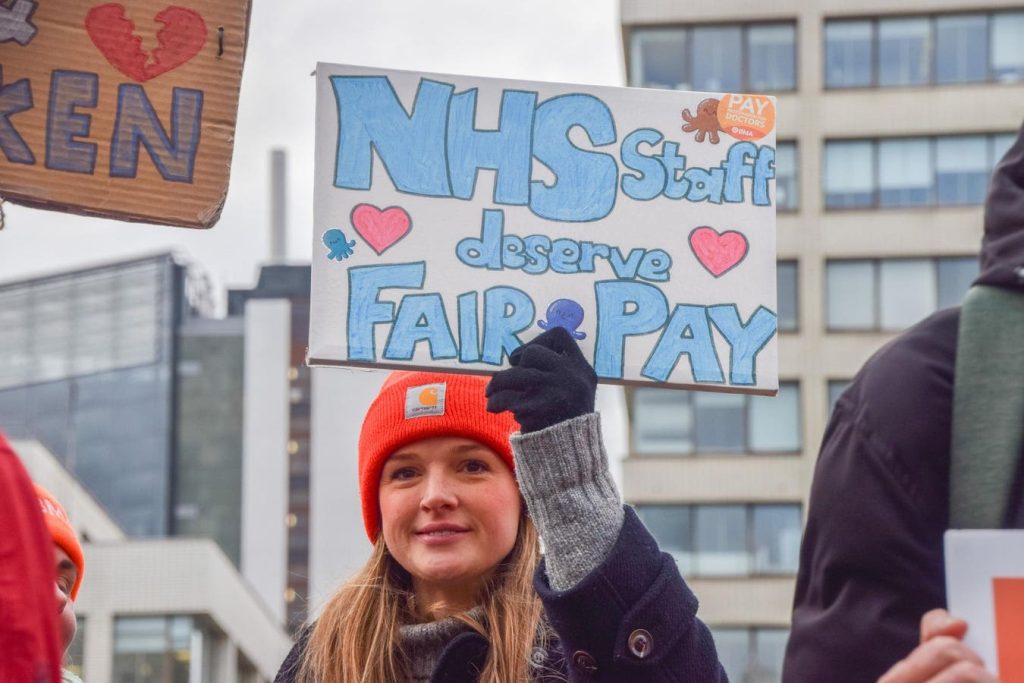Junior doctors in England’s public health system have begun mediated talks with the government after almost a year of industrial action. This series of disputes has cost billions of pounds and delayed millions of hospital appointments, causing significant strain on the National Health Service (NHS). While other groups of NHS staff have largely ended their strikes, junior doctors have continued their walk-outs in protest of declining pay levels. The British Medical Association, the doctors’ union, is hopeful that an external mediator can help break the deadlock and reach a credible solution.
The junior doctors, who are qualified medics and surgeons with up to eight years of hospital experience, are equivalent to interns and residents in the U.S. They have been seeking better pay and working conditions that have not kept up with inflation, leaving them feeling underpaid during a period of intense pressure on the NHS. Various factors, including large waiting lists for planned care, high demand for urgent and emergency care, and a lack of social care capacity, have contributed to the strained system. These challenges have led to overcrowding in emergency departments and lengthy handover delays for ambulances.
In addition to the junior doctors in England, other parts of the U.K. are also experiencing industrial action. Staff in Wales are currently negotiating with ministers, while those in Northern Ireland are set to walk out for two days in the coming week. The demand for health services is expected to continue to grow as the population ages, making it crucial to attract and retain a healthy workforce. Unions argue that increasing pay is necessary to ensure the safety of patients in busy hospitals. However, ministers have pushed back, stating that the demands for pay rises, such as the junior doctors’ request for a 35% increase, are unaffordable.
In response to the ongoing disputes, the U.K. health and social care secretary, Victoria Atkins, has expressed a desire to resolve the issues with the British Medical Association junior doctors committee. She hopes that exploring mediation can provide a way forward to address the concerns of NHS staff and consolidate recent progress on reducing waiting lists. The talks with the government collapsed in December, leading to the decision to bring in an external mediator to facilitate the negotiations. The junior doctors’ committee co-chairs have expressed optimism about reaching a credible solution as soon as possible to address the declining pay for junior doctors.
The strikes by NHS staff have been ongoing for more than 16 months, with workers seeking better pay and working conditions as the health system grapples with significant challenges. The demanding and stressful environment of the NHS has highlighted the need for adequate compensation for staff who are crucial in delivering care to patients. The prolonged industrial action has disrupted hospital services and caused delays in appointments, pointing to the urgent need for a resolution to the ongoing disputes. The hope is that the mediated talks with the government will lead to a sustainable solution that can alleviate the strain on the NHS and ensure the well-being of both staff and patients.


